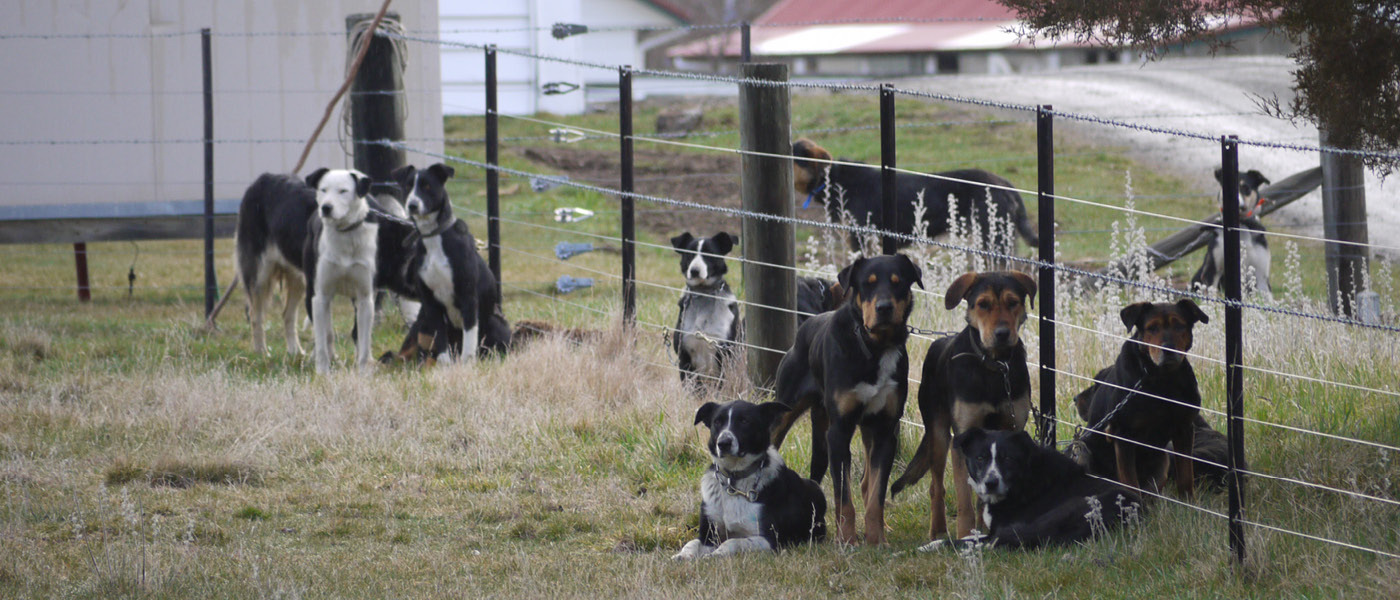
With outdoor activities and events, and domestic travel in full swing across New Zealand during the warmer months, we often experience outbreaks canine cough- commonly known as ‘kennel cough’. Despite the name, this highly contagious respiratory illness is not limited to dogs in boarding kennels. It frequently affects working dogs, especially when teams from different regions come together during busy farming periods.
Canine cough is caused by disease agents that are commonly present in New Zealand – it is not an exotic disease. The condition affects the trachea (windpipe) and, in severe cases, can lead to pneumonia or even death. The primary symptom is a harsh, persistent cough, often accompanied by fever and lethargy. It spreads easily through airborne droplets, making close contact – such as at dog trials, in kennels, or on chains – a significant risk factor.
Working dogs are particularly vulnerable, especially when mingling with unfamiliar teams. Entire teams can be laid low for one to two weeks, impacting farm operations and dog trial participation. Dogs showing signs of infectious disease will be barred from competing, so prevention is key.
Canine cough vaccination is administered alongside your dogs’ core DHPPi vaccinations (distemper, hepatitis, parvovirus, parainfluenza). After completing the primary puppy course and annual booster, core vaccinations are recommended every two to three years. The canine cough vaccine should be given annually.
Recent studies show concerning gaps in vaccination coverage:
Although not all disease agents are covered by available vaccines, vaccination significantly reduces the severity of illness and remains a cornerstone of disease management.
With dog trial events continuing nationwide throughout summer until May, now is the time to ensure your dogs are protected. We understand that remote locations and large teams can make vaccination logistics challenging. That’s why your local Vetlife team is available to visit your farm, conduct thorough health checks, and administer necessary vaccinations.